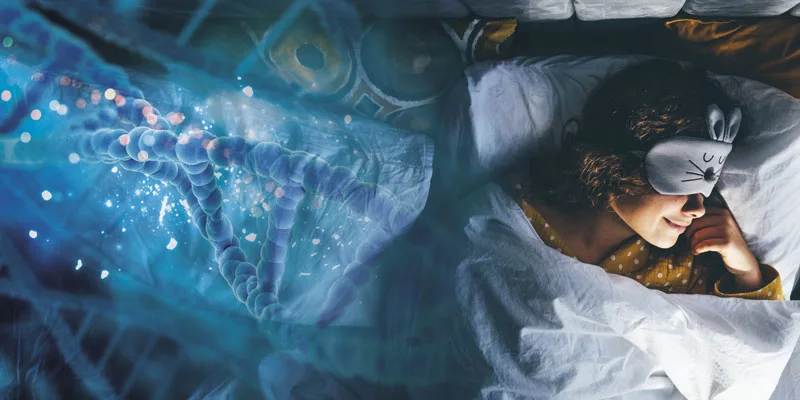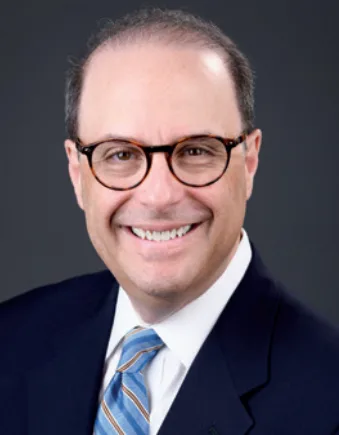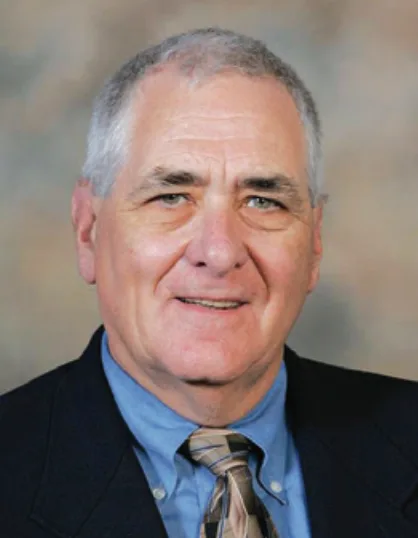
by Lee A. Surkin, MD, FACC, FCCP, FASNC, FAASM, and Robert J. Floro, MS, RRT
Sleep is a universal, natural, easily reversible periodic state with similar processes and rhythms across the human species. However, although it follows a recognizable pattern, sleep presents many differences among healthy individuals. Some of these differences are considered to be environmental as they relate to meal times, work routines, travel schedules, etc,. but many are inherited as well.
That said, every person’s unique genetics play a huge role in their sleep patterns, no matter if they are an early bird, a night owl, or something in between. To be more precise, your genes are linked with the amount of sleep you need, your sleep quality, and even the likelihood of sleepwalking or other sleep disorders.
Now, let’s dig deeper into the genetics of sleep.
Sleep Duration
Even though it may sound surprising, some people can get by on four hours of sleep per night, whereas others need six, eight, or nine. Sleep genetics research has shown that genetic factors have a significant impact on how long most living organisms need to sleep.1
One study conducted on thirteen generations of fruit flies found that each generation of short-sleepers slept less than the previous generation. Similarly, each generation of long-sleepers slept longer than the previous generation. Hence, the study concluded that the genetic influence on sleep is quite strong, i.e. that genetics influence sleep duration, at least for some organisms.2
Another sleep genetics research on twelve-year-old twins identified similar sleep patterns in genetically identical siblings. The time the twins decided to go to bed and the time they woke up was particularly influenced by genetic factors. What’s more, sleep architecture, i.e. the amount of time spent in each sleep stage, was also similar in identical siblings.3
Sleep Quality
Sleep quality, as well as sleep duration, can be reduced significantly as a result of stress since it influences vulnerable genes. Namely, stress stimulates certain neurons which sets the stage for many sleeping issues such as difficulty falling asleep, staying asleep, and falling back to sleep after waking up in the middle of the night.
According to Japanese researchers, specific molecular pathway mutations can lead to fragmented sleep, resulting in poor sleep quality and quantity.4 Another study found that mutation of the circadian rhythm gene, called CRY1, can result in delayed sleep phase disorder in families. As a consequence of this mutation, there are generations of night owls with extended circadian rhythms. If people with such genetic sleep traits try to fit into the usual societal sleep patterns, they experience fragmented sleep and sleep deprivation.5
However, one study conducted on night owls proved that delayed sleep patterns can be changed under specific environmental conditions that affect the circadian rhythm. This was shown after studying a night owl subject who was exposed to bright early morning regularly and was able to conform to typical sleep patterns.
Sleep Disorders
Finally, due to lifestyle and behavioral factors, certain medical conditions, or genetic factors, some people may develop sleep disorders. But, they can also be idiopathic meaning that the cause of the disorder cannot be explained or identified. And, although there are about eighty sleep disorders affecting about seventy million Americans, some of them have a close connection with genetics.
So, here’s a brief list of the most commonly diagnosed sleep disorders with a genetic association:
- Restless legs syndrome
- Insomnia
- Kleine-Levin syndrome
- Sleep Paralysis
- Sleepwalking
- Nocturnal Bruxism (Teeth grinding)
- Sleep apnea
The bottom line, many factors can affect sleep including personal lifestyle, stress, environmental, and genetic factors. Hence, sleep requirements differ from person to person, but are strongly influenced by genetic sleep traits.
- Parish, J. M. (2013, May). Genetic and immunologic aspects of sleep and sleep disorders. https://www.ncbi.nlm.nih.gov/pmc/articles/PMC3734884/
- Panchin, Y., & Kovalzon, V. M. (2021, April 7). Total wake: Natural, pathological, and experimental limits to sleep reduction. Frontiers in neuroscience. https://www.ncbi.nlm.nih.gov/pmc/articles/PMC8058214/
- Sletten, T. L., Rajaratnam, S. M. W., Wright, M. J., Zhu, G., Naismith, S., Martin, N. G., & Hickie, I. (2013, November 1). Genetic and environmental contributions to sleep-wake behavior in 12-year-old twins. https://www.ncbi.nlm.nih.gov/pmc/articles/PMC3792390/
- Sharma, S., & Kavuru, M. (2010). Sleep and metabolism: An overview. International journal of endocrinology. https://www.ncbi.nlm.nih.gov/pmc/articles/PMC2929498/
- Patke, A., Murphy, P. J., Onat, O. E., Krieger, A. C., Özçelik, T., Campbell, S. S., & Young, M. W. (2017, April 6). Mutation of the human circadian clock gene CRY1 in familial delayed sleep phase disorder. https://www.ncbi.nlm.nih.gov/pmc/articles/PMC5479574/
- AP;, F.-C. E. B. D. (n.d.). Resetting the late timing of “night owls” has a positive impact on mental health and performance. Sleep medicine. https://pubmed.ncbi.nlm.nih.gov/31202686/

 Lee A. Surkin, MD, is the Chief Medical Officer of Nexus Dental Systems. A private practitioner in cardiology, sleep medicine, and obesity medicine, he is one of a small group of physicians to be triple board certified in cardiology, sleep medicine, and nuclear cardiology. In 2009, he created Carolina Sleep – the only dedicated sleep medicine practice in eastern NC. Dr. Surkin has created a cardiovascular and sleep healthcare model that includes a multi-faceted diagnostic and treatment approach that is enhanced by a network of relationships with physicians, dentists, respiratory therapists, sleep technologists, and public officials who recognize the important role that sleep medicine has in our daily life. In 2012, Dr. Surkin founded the American Academy of Cardiovascular Sleep Medicine which is a not-for-profit academic organization dedicated to educating healthcare providers, supporting research, and increasing public awareness of the convergence between cardiovascular disease and sleep disorders. In 2014, Dr. Surkin created a new multi-specialty practice called Carolina Clinic for Health and Wellness which combines his specialties with primary care, gynecology, behavioral health and a medical spa. Dr. Surkin is married with three daughters and a golden retriever and resides in Greenville, NC.
Lee A. Surkin, MD, is the Chief Medical Officer of Nexus Dental Systems. A private practitioner in cardiology, sleep medicine, and obesity medicine, he is one of a small group of physicians to be triple board certified in cardiology, sleep medicine, and nuclear cardiology. In 2009, he created Carolina Sleep – the only dedicated sleep medicine practice in eastern NC. Dr. Surkin has created a cardiovascular and sleep healthcare model that includes a multi-faceted diagnostic and treatment approach that is enhanced by a network of relationships with physicians, dentists, respiratory therapists, sleep technologists, and public officials who recognize the important role that sleep medicine has in our daily life. In 2012, Dr. Surkin founded the American Academy of Cardiovascular Sleep Medicine which is a not-for-profit academic organization dedicated to educating healthcare providers, supporting research, and increasing public awareness of the convergence between cardiovascular disease and sleep disorders. In 2014, Dr. Surkin created a new multi-specialty practice called Carolina Clinic for Health and Wellness which combines his specialties with primary care, gynecology, behavioral health and a medical spa. Dr. Surkin is married with three daughters and a golden retriever and resides in Greenville, NC. Robert J. Floro, MS, RRT, is the managing partner at Respiratoryedu.org and Sleepedu.org. He is also the managing Partner for HME Professional, a consulting firm working with home care organizations to develop business, manage human resources, and comply with accreditation standards, and federal and State regulatory standards. Bob has over forty years of experience in health care. He has a strong background in respiratory care and the durable medical equipment industry, including previous DME ownership and leadership positions. Prior to his position with HME Professional, Bob served as the Director of Home Care Accreditation Program at The Joint Commission. He has owned and managed medical equipment businesses, taught at the university level, and held board and membership positions in AARC, ALA of KY, AHA, ISRC, KSRC, KMESA, IAMES, and is currently an advisor to the Sleep Center Management Institute in Atlanta. Bob holds a Master of Science in Leadership from the Ken Blanchard College of Business and is a Registered Respiratory Therapist.
Robert J. Floro, MS, RRT, is the managing partner at Respiratoryedu.org and Sleepedu.org. He is also the managing Partner for HME Professional, a consulting firm working with home care organizations to develop business, manage human resources, and comply with accreditation standards, and federal and State regulatory standards. Bob has over forty years of experience in health care. He has a strong background in respiratory care and the durable medical equipment industry, including previous DME ownership and leadership positions. Prior to his position with HME Professional, Bob served as the Director of Home Care Accreditation Program at The Joint Commission. He has owned and managed medical equipment businesses, taught at the university level, and held board and membership positions in AARC, ALA of KY, AHA, ISRC, KSRC, KMESA, IAMES, and is currently an advisor to the Sleep Center Management Institute in Atlanta. Bob holds a Master of Science in Leadership from the Ken Blanchard College of Business and is a Registered Respiratory Therapist.